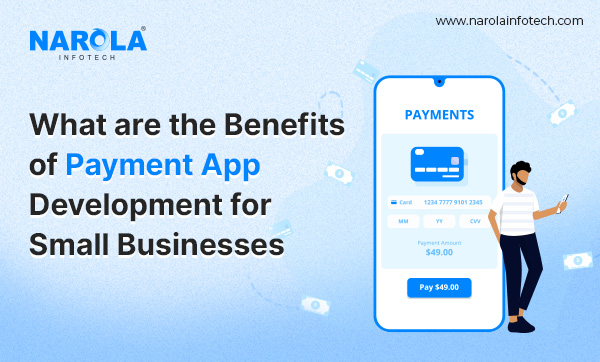In today's digital age, consumers expect quick and easy payments. This is why payment app development is becoming increasingly important for small businesses. A payment app can help you improve your customer service, boost sales, and reduce your operating costs.
There are many benefits
to developing a payment app for your small business. Here are just a few
· Convenience: Payment apps make
it easy for customers to pay for your products or services. They can use their
credit cards, debit cards, or even their mobile wallets to make a payment with
just a few taps. This convenience can lead to increased sales and customer
satisfaction.
· Security: Payment apps
use the latest security technologies to protect your customers' financial
information. This helps to build trust and confidence, which can lead to repeat
business.
· Efficiency: Payment apps
can help you streamline your payment process. You can eliminate the need for
cash registers and credit card machines, which can save you time and money.
· Marketing: Payment apps
can be a great way to market your business. You can use them to send push
notifications to your customers, offer discounts and promotions, and collect
feedback.
If you're a small
business owner, you should consider developing
a payment app. It's a great way to improve your customer service, boost
sales, and reduce your operating costs.
How to Develop a Payment App?
If you're interested in developing a
payment app for your small business, there are a few things you need to do:
1. Choose a payment
processor. A payment processor is a company that will handle the financial
transactions for your app. There are many different payment processors
available, so it's important to choose one that is right for your business.
2. Design your app. You need to
design your app to be user-friendly and secure. Make sure it includes all of
the features your customer’s need, such as the ability to make payments, view
transaction history, and manage their account information.
3. Develop your app. You can
develop your app yourself or hire a mobile app development company. If you're
not sure where to start, there are many resources available online that can
help you.
4. Test your app. Once your
app is developed, you need to test it thoroughly to make sure it works
properly. You should test it on different devices and with different payment
methods.
5. Launch your app. Once your
app is tested and ready to go, you can launch it in the app store.
Developing
a payment app can be a complex process, but it's worth the effort. A well-designed
and secure payment app can help you improve your customer service, boost sales,
and reduce your operating costs.
If you're looking
for a experienced mobile app development company to help you develop your
payment app, contact Narola Infotech.
We have a team of experienced developers who can help you create a custom app
that meets your specific needs.

Comments
Post a Comment